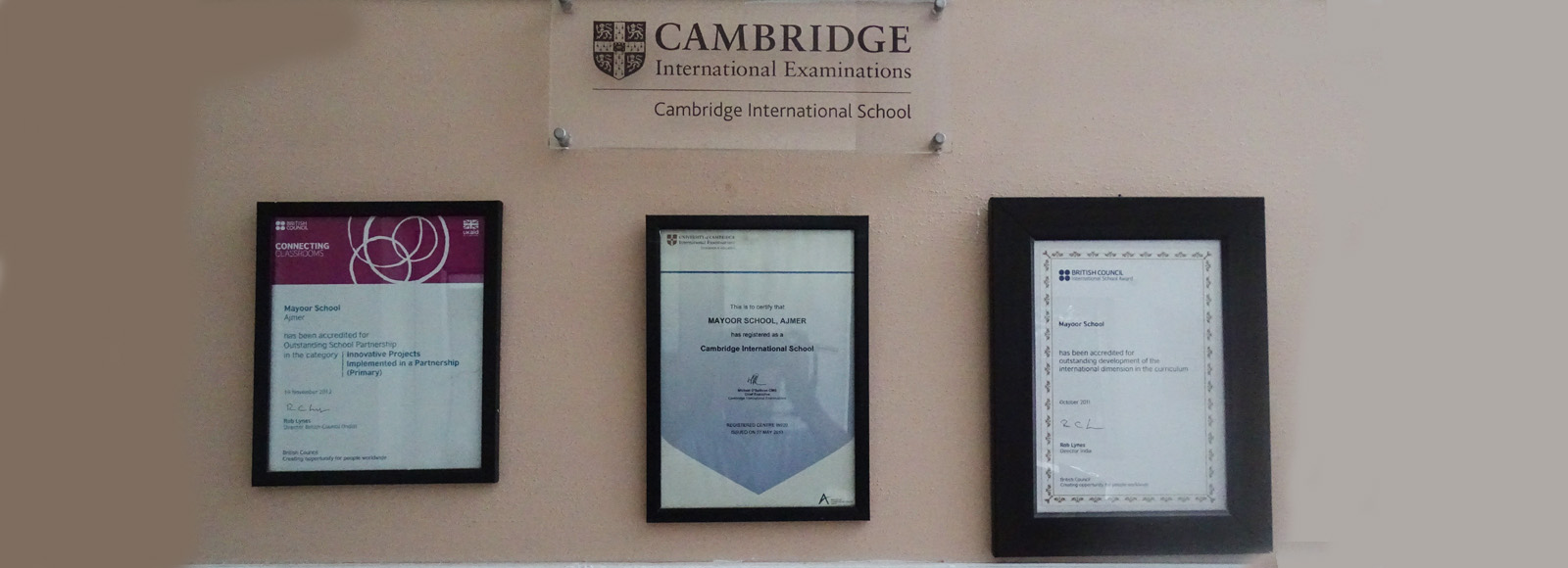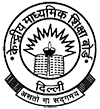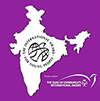Cambridge Assessment International Education
Cambridge programmes and qualifications set the global standard for international education. They are created by subject experts, rooted in academic rigour and reflect the latest educational research.
Cambridge Pathway -The four stages of Cambridge Pathway lead seamlessly from primary to secondary and pre-university years. Each stage builds on the learners’ development from the previous one, but can also be offered separately.
At the end of the Cambridge Upper Secondary and Cambridge Advanced stages, your child can achieve globally recognized qualifications like Cambridge IGCSE® or Cambridge International AS & A Level.
What is Cambridge Primary?
Cambridge Primary
Cambridge Primary is a great place
to start child’s learning journey. It enables learners to develop their
knowledge and skills in core subjects, and prepares them for progression to
Cambridge Lower Secondary, and other educational systems. Teachers are able to
monitor child’s development through a number of progress checks built into the
Cambridge Primary programme. Short progression tests are a valuable way for
teachers to understand child’s strengths and identify areas where more help is
needed. The focus of these tests is showing where the child is on their
learning journey, rather than getting right or wrong answers. Cambridge Primary
Checkpoint tests are marked by Cambridge International, and can be taken in the
final year of Cambridge Primary. On completion of Cambridge Primary Checkpoint,
the child will receive a statement of achievement and a detailed feedback about
the child’s performance.
Cambridge Lower Secondary
Cambridge Lower Secondary is an education programme for learners aged 11 to 14 years that builds skills, knowledge and understanding in English as a first and language, mathematics, and science.
Cambridge Lower Secondary provides a natural progression from primary education, helping to equip the child with the knowledge and skills needed for post-14 education programmes that lead to formal qualifications. The programme is flexible, allowing the curriculum to be tailored to the needs and culture of each school while remaining internationally relevant. It is suitable for students with English as a first or second language. Teachers are able to monitor child’s development through a number of progress checks built into the Cambridge Lower Secondary programme. Short progression tests are a valuable way for teachers to understand child’s strengths and identify areas where more help is needed. The focus of these tests is showing where child is on their learning journey, rather than getting right or wrong answers. School can choose between paper-based and on-screen versions of the progression tests. Cambridge Lower Secondary Checkpoint tests are marked in Cambridge, and can be taken in the final year of Cambridge Lower Secondary. On completion of Cambridge Lower Secondary Checkpoint, the child will receive a statement of achievement and a detailed feedback about the child’s performance.
Cambridge IGCSE?
Cambridge IGCSE is the world’s most popular international qualification for 14 to 16 year olds, attracting over 900000 subject entries every year from 140 countries.
Cambridge IGCSE helps students to develop knowledge, understanding and skills in subject content and intellectual enquiry. Cambridge IGCSE has been designed for students worldwide, including those whose first language is not English. We offer students the flexibility to choose from
·
Languages :
English, Hindi
·
Mathematics
·
Sciences :
Physics, Chemistry, Biology
·
Humanities :
Geography / History, Economics
·
Creative & Vocational : Art
& Design / Physical Education / Information and Communication Technology
(ICT)
Assessment takes place at the end of the
course and offers students a range of ways to demonstrate their learning,
including written, oral, coursework and practical assessments. There are also
options to suit learners of different abilities. The grades awarded at
Cambridge IGCSE are A*–G, with A* being the highest. This means that Cambridge
IGCSE is a great foundation for further study, including Cambridge
International AS & A Level, Cambridge Pre-U, the International
Baccalaureate Diploma and other post-16 routes. Opening up opportunities
worldwide Cambridge IGCSE qualification is recognised by leading universities
around the world and employers view it as a valuable certificate of
achievement.
Cambridge International AS & A Level
Cambridge International AS & A Level qualifications are taken by over 175 000 learners in nearly 130 countries every year. They are typically for learners aged 16 to 19 years who need advanced study to prepare for higher education
Cambridge International A Level is typically a two-year course, and Cambridge International AS Level is typically one year. Schools can choose to offer Cambridge International AS Level qualifications in their own right, or as a way to progress to Cambridge International A Level. Students can choose from a range of 55 subjects, meaning they can study what they enjoy and are good at. They develop a deep understanding of the subjects they study, as well as independent learning and critical thinking skills – abilities that universities value highly. Cambridge International AS & A Levels are designed for students worldwide, including those whose first language is not English. Assessment takes place at the end of the course, and gives students a variety of ways to show their knowledge and skills. Learners can easily find out which universities worldwide accept Cambridge qualifications by searching online database at www.cambridgeinternational.org/ recognition.
For List of Books Prescribed – Click Here











